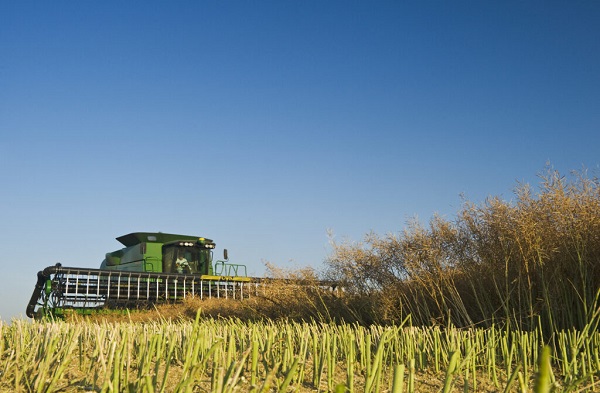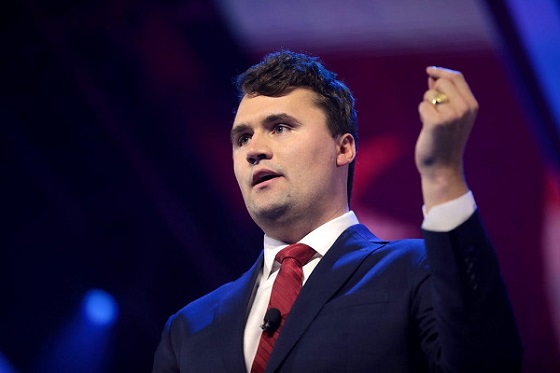Opinion
Female UN expert calls for ban on men in women’s sports, gets accused of ‘demeaning language’
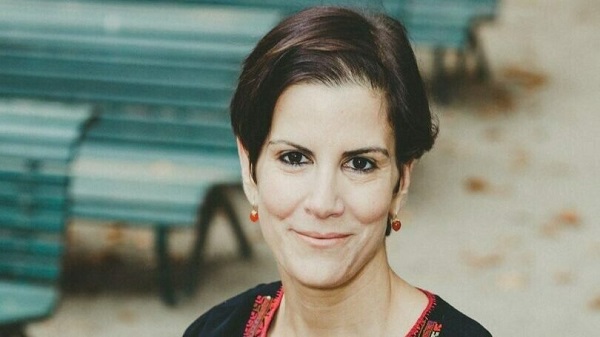
Reem Alsalem
From LifeSiteNews
By Ordo Iuris
“Giving men so-called hormone blockers so they can compete with women – as some sports leagues do – doesn’t work”
United Nations Special Rapporteur Reem Alsalem, in a recent report, called on countries and sporting organization authorities not to allow “men who identify as women” to compete in female sports competitions.
- The U.S. representative to the UN accused Alsalem of using “degrading language” and of “bullying and gender misinformation.”
- Delegates from Great Britain, Canada, the Netherlands, France, Mexico, Colombia, and other Western countries raised similar objections.
- “Gender should be understood in its ordinary sense as biological sex,” Alsalem said during the report’s presentation, citing the agreement from the 1995 UN World Conference on Women in Beijing.
- Alsalem’s approach challenges the assumptions of Western and UN-backed gender policies, which are based on gender as a social construct unrelated to biological sex.
In her latest report to the General Assembly, the UN Special Rapporteur on Violence Against Women, Reem Alsalem, called on countries to stop allowing “men who identify as women” to compete against women and girls in sports. The U.S. representative to the UN, wearing a badge on his jacket with the colors of the LBGT and trans lobbies, accused her of using “degrading language” against trans athletes, as well as spreading “gender misinformation” and “bullying.” Delegates from Great Britain, Canada, the Netherlands, France, Mexico, Colombia, and other Western countries made similar accusations.
READ: Women’s sports are under siege by male participants, and no one seems to be stopping it
According to the report, allowing men declaring female gender into women’s competitions also leads to women and girls experiencing “extreme psychological distress,” due to physical imbalance with rivals, loss of fair competition and educational and economic opportunities, and violations of privacy (e.g., in locker rooms). Alsalem says that, in recent years, more than 600 female athletes have lost some 890 medals in more than 400 competitions, in 29 different sports, due to policies allowing men to compete against women.
“Giving men so-called hormone blockers so they can compete with women – as some sports leagues do – doesn’t work,” Alsalem said. It does not reduce men’s natural advantage, and strong hormone drugs can even harm an athlete’s health.
“Human rights language and principles must continue to be consistent with science and facts, including biological ones,” the expert argued. “Multiple studies have given evidence that athletes born males have a performance advantage in sports throughout their lives although this is most apparent after puberty.” Alsalem also mentioned the risk of injury to female athletes, which is knowingly increased when competing with biological men, whether they identify as men or women, the physical harm suffered by women against male athletes can be characterized as violence, according to the special rapporteur.
“Sex must be understood in its ordinary meaning to mean biological sex,” Alsalem said, citing a declaration from the 1995 UN World Conference on Women in Beijing. She continued by stating that “sex based on biology” has been established in the international human-rights catalog, as opposed to the concept of “gender.” According to Alsalem, the two categories should not be confused.
Julia Książek, of the Ordo Iuris Center for International Law, stated:
Reem Alsalem identified a major problem that became fully apparent at the Paris Olympics this year, when it became evident that women were no longer competing against women, but also men who ‘identify’ as women. The UN expert rightly noted in her report that athletes’ mental identification does not in any way affect their biological predisposition, which they have by being men. This type of situation is the result of lobbying in international law for the concept of ‘sex with social context’ – gender. The first event raising questions about the use of the ‘gender’ construct was the 1995 World Conference on the Rights of Women in Beijing. The debate around its final declaration stirred controversy precisely because of the definition of gender, listed in the text as ‘gender’ rather than ‘sex.’ Under pressure from a large group of UN member states, the conference chairman clearly stated that the word gender was used in the ordinary, generally accepted sense in which it appears in UN documents, recalling the non-binding declarations attached to the final declarations of UN conferences in the early 1990s. He also stressed that there was no intention to give a new meaning to the term that would differ from the generally accepted one. Reem Alsalem also noted this in her report.
The Ordo Iuris Institute has long opposed the gender lobby in sports. In 2020, the Institute’s experts prepared an analysis of a draft UN resolution, which maintained that athletes should be allowed to participate in competitions according to their subjective feelings about gender.
This article was originally published on Ordo Iuris’ English-language page. Edited and reprinted with permission.
Business
Public Safety Minister admits gun buyback program is waste of money and resources – 742,000,000 projected cost to taxpayers

From Conservative Party Communications
A decade of reckless Liberal soft-on-crime, bail-not-jail policies have left a majority of Canadians feeling unsafe in their own neighbourhoods with a justice system that works against them. Violent crime has increased by 55%, gun crime 130% and extortion 330%.
Instead of repealing their hug-a-thug laws that put criminals first and victims last, Mark Carney’s hapless Minister of Public Safety is pushing a failed gun buyback program that he admits is a waste of money that will do nothing to keep Canadians safe.
Yesterday, in a leaked recording, Public Safety Minister Gary Anandasangaree was caught telling the truth about the failed Liberal buyback boondoggle while breaching basic ethics:
The program is all for votes
“Quebec is in a different place than other parts of Canada, right? And this is something that is very much a big, big, big deal for many of the Quebec electorate that voted for us, right? And that’s one of the major things. I think it’s, I saw, I’m sure you’ve seen these articles where people said, you know, this is one of the things we should not execute, like as a change from Trudeau’s policies, but we’ve made the decision to go ahead.”
Carney forced me
“But this is the mandate I was given by Carney to complete this…if I were to redo this from scratch, I would have a very different process.”
I’ll pay you back
“In your case, what are your losses? You tell me, I’ll personally offset you.”
Ignore the law, I’ll bail you out
“I’m not going to send the police to you…I doubt (the program) is going to go that far…I will come and bail you out if that happens, I will. You call me.”
Mark Carney has admitted “the vast majority of firearms, illegal firearms, firearms used in crime come across our border,” yet the Liberals are continuing with a confiscation program that goes after legal, trained, tested and licensed Canadian firearms owners. That includes confiscating hunting rifles from Indigenous people exercising their treaty rights to hunt.
Anandasangaree’s buyback boondoggle is conservatively estimated to cost $742 million for a program the Minister himself admits is a waste of money and resources, pursued purely for political gain. $742 million represents 5,000 RCMP officers, 300 port scanners or 37,000 addiction treatment beds. That’s money that could go to restoring safety on our streets, ending gun smuggling and bringing our loved ones home drug-free.
Offering to bail out his tenant from criminal charges is not the first time Anandasangaree has been accused of not being impartial while upholding the law as Minister. After it was discovered he implored CBSA to overturn an immigration decision despite national security concerns, he was forced to recuse himself from files involving terrorist groups “to ensure that there is no perception of any conflict”. The Minister claimed he was simply helping a constituent, but that was also revealed to be a lie.
All of these failures stack on top of an abysmal record. The Minister has failed to ban the extortionist Bishnoi Gang and lost almost 600 non-citizen criminals in Canada, 70% of whom committed serious crimes such as sexual assault. In the pursuit of the buyback boondoggle, he’s also breaking his promise to add 1,000 RCMP and 1,000 CBSA officers.
These failures have real-world consequences: Canadians no longer feel safe in their own homes, and with good reason. This cannot go on. Mark Carney appointed Anandasangaree as Public Safety Minister. He must own up to his terrible judgment, hold his Minister accountable and fire Minister Anandasangaree.
Alberta
Federal policies continue to block oil pipelines
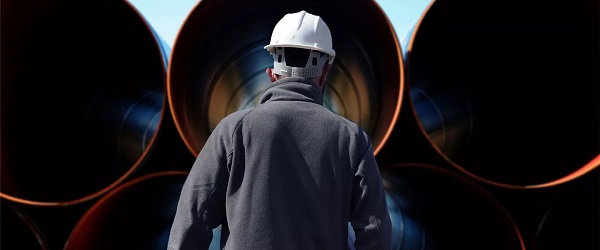
From the Fraser Institute
By Tegan Hill and Elmira Aliakbari
Prime Minister Carney’s recently released list of five projects—which the government deems to be in the national interest and will expedite—doesn’t include a new oil pipeline for western Canada in general or Alberta in particular. The reason given was that no private developer stepped forward to finance or build one. But the reason for that is not a mystery: Justin Trudeau’s damaging energy policies continue to drive away oil and gas investment even though his successor campaigned on a different, more pragmatic approach. It’s no wonder Albertans are frustrated.
Promising to make Canada the world’s leading “energy superpower,” the Carney government in the spring introduced Bill C-5, the “Building Canada Act,” to give the federal cabinet sweeping powers to circumvent existing laws and regulations for projects deemed to be in the “national interest.” In effect, cabinet and the prime minister are empowered to pick winners and losers based on vague criteria and priorities. But while specific projects will be expedited, so far nothing has been done to undo the damaging federal policies that have hamstrung Canada’s energy sector over the last decade.
Trudeau-era changes to the regulatory system for large infrastructure projects included: Bill C-69 (the federal “Impact Assessment Act”); the West Coast tanker ban (as spelled out in federal Bill C-48); and the federal cap imposed exclusively on oil and gas emissions. These have hindered energy investment and development and impeded prosperity, not only in energy-producing provinces, but across the country.
The Energy East and Eastern Mainline pipelines from Alberta and Saskatchewan to the east coast would have expanded Canada’s access to European markets. But the Trudeau government rendered the projects (Energy East and the Eastern Mainline) economically unprofitable by introducing new regulatory hurdles that ultimately forced TransCanada to withdraw from the project.
A year after taking office, the Trudeau government simply cancelled the Northern Gateway pipeline, an already approved $7.9 billion project that would have transported crude oil from Alberta to the B.C. coast, thus expanding Canada’s access to Asian markets. As for Trans Mountain, the one pipeline project that did survive the Trudeau years, after the private investor was frightened off by regulatory hurdles and delays and the federal government took over, costs sky-rocketed to $34 billion—more than six times the original estimate.
With policies like these still in place, it’s no wonder investors aren’t lining up to put big money into Canadian oil and gas. Just how great the discouragement has been is indicated by the 56 per cent inflation-adjusted decline in overall investment in the oil and gas sector between 2014 and 2023 (from $84.0 billion to $37.2 billion).
That decline in investment has had and will continue to have big consequences for the western provinces, particularly Alberta, where energy is a key part of the economy. But it would be a mistake to think the costs are limited to Alberta. From 2007 to 2022, Albertans’ net contribution to federal finances (total federal taxes they paid minus federal money spent on or transferred to them) was $244.6 billion. A strong Alberta helps keep taxes lower and fund public services across Canada.
Canada urgently needs new oil pipelines to tidewater. The U.S. is currently the destination for 97 per cent of our oil exports. This heavy reliance on a single customer leaves us exposed to policy shifts in Washington, such as the recent threat of tariffs on Canadian energy. Expanding pipeline infrastructure both westward and eastward would help diversify our export market into Asia and Europe, as well as strengthen our energy security.
Prime Minister Carney’s short list of projects is another blow to western Canada, and especially Alberta. There’s an obvious reason no private developer has stepped forward to finance or build a new oil pipeline: the Trudeau government’s damaging energy policies. The federal government needs to undo these policies and allow the private sector to make Canada an energy superpower.
-

 Business2 days ago
Business2 days agoCanadian gov’t spending on DEI programs exceeds $1 billion since 2016
-
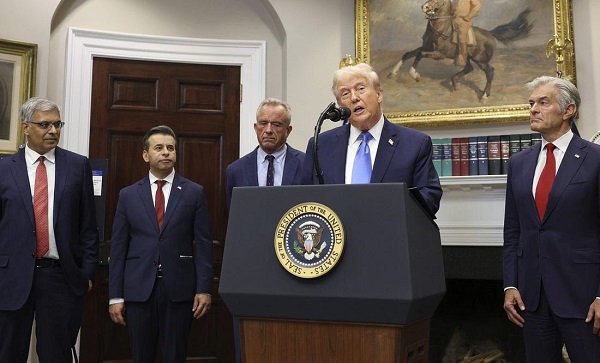
 Autism1 day ago
Autism1 day agoPresident Trump, Secretary Kennedy Announce Bold Actions to Tackle Autism Epidemic
-
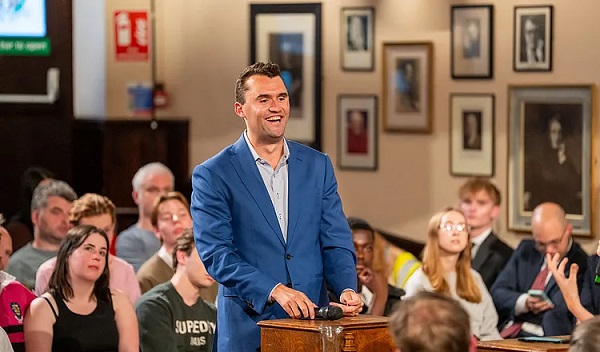
 Frontier Centre for Public Policy2 days ago
Frontier Centre for Public Policy2 days agoCharlie Kirk Fought A Progressive Ideology That Punishes Truth
-
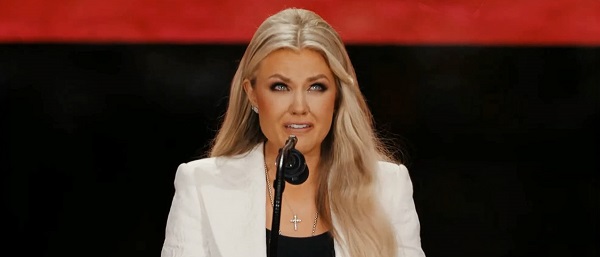
 Crime2 days ago
Crime2 days agoCharlie Kirk’s Widow Says She Forgives Her Husband’s Assassin During Memorial
-

 Health1 day ago
Health1 day agoRFK Jr.’s immunization committee recommends against MMRV vaccine for toddlers
-

 National1 day ago
National1 day agoCanada Recognizes Palestine, Allows Taiwan to Be Sidelined: A Tale of Two Standards in Ottawa’s Foreign Policy
-

 International14 hours ago
International14 hours agoCarney’s Canada has recognized a psycho “state” that doesn’t exist
-

 Bruce Dowbiggin1 day ago
Bruce Dowbiggin1 day agoChoking The Night Away: Can Blue Jays/ Tigers Recover?
